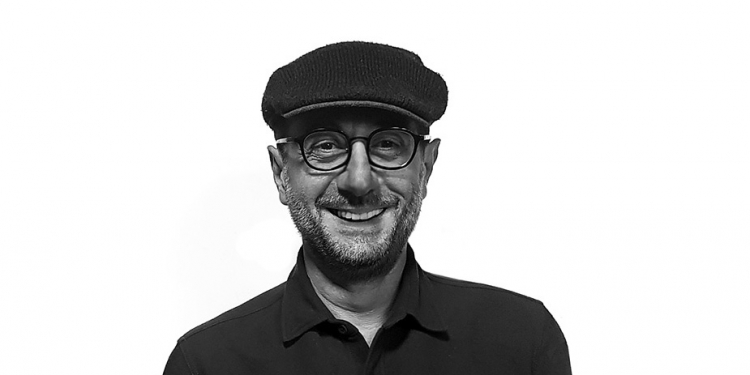According to the first and oldest Global Hope “End of the Year” Index produced by the Gallup International Association (GIA), 28% of the world expects the next 12 month to be more peaceful while 34% believe it will be more troubled. Moreover, Georgians are among the top 10 countries that have positive confidence in peace, with 43% of surveyed respondents in Georgia stating that that 2019 will be a more peaceful year for the world.
The survey was carried out by Gallup International in 50 countries around the world, with a total of 48,745 persons interviewed internationally. In each country a representative sample of around 1000 men and women was interviewed. GORBI has been a part of the project since the mid 1990s and the exclusive data provider for Georgia.
Dr. Kancho Stoychev, the President of GIA said “Traditionally in previous decades more people around the World expect a peaceful New Year rather than a troubled one with a permanent exemption: The Middle East. But now for the first time in this century a growing number of West Europeans expect fear a less peaceful next year. The global political order established by the winning parties after the Second WW is rapidly falling apart and the West European nations are concerned about what will come next but also whether they will have a say in as power shifts further to the East”.

Let me briefly focus on Georgia and tell you more about who is more optimistic and why that is the case.
Answering the “who” question is much easier, as it only takes a quick analysis of the data to see that the divide in optimism between Georgia and the world grows even bigger when we look at gender. If, on average, in 50 countries, 26% of males and 28% of females perceive next year as more peaceful, in Georgia 39% of males and 47% of females think that the world will be more peaceful next year. Therefore, Georgian women are even more optimistic regarding world peace than females in the selected 50 countries.
Another interesting finding we discovered while comparing Georgia against the world was that as age increases, people feel that next year will be less peaceful. The same is not true for the Georgian population as a whole.


As shown on Chart 2, the youngest cohort of Georgians from 18-24 years old is very pessimistic compared to their peers in other groups. When we look at the shape of the graph, we find that in Georgia the attitude towards world peace in 2019 varies lot less by age, compared to average variation by age in 50 countries around the world.
Except my own country of Georgia, it is very hard for me to attribute the reasons for confidence in peace for each country (as shown in Table 1) due to a lack of knowledge of local nuances. However, the ongoing protests of the ‘gilets jaunes’ seems to be a perfect explanation of why France perceives more troubles for the coming year compared to the rest of the world.
So, we Georgians are optimists about a peaceful future and there are a few explanations:
First, this country has not had any major external or internal armed conflicts since 2008 and during recent years things have stayed stable and peaceful (except for a few nasty cases initiated by Russian occupation troops moving the administrative boundary line deeper into the country or capturing locals and taking them to Tskhinvali prison), and more predictable. Secondly, and internally, despite several medium- and small-scale street demonstrations, we had no violent crackdown on peaceful citizens by the state’s law enforcement structures since 2012 since the election of a new government. Finally, the outcome of the recent presidential elections and promises made by the ruling party leadership to change the social-economic situation drastically and in one year, have had an impact.
While maintaining peace with the Russian Federation requires much more than conventional wisdom and running post-Soviet Georgia without the use of brutal force against the opposition is a recent phenomenon, changing the economic situation dramatically in 12 months seems the biggest challenge since it requires not only new economic initiatives and reforms but big changes among those who are in top management in this country.
And I don’t think that the public will be waiting to see results after one year. Unless we are witnessing tangible changes ASAP we should expect mass protests in 2019 similar to the French ‘gilets jaunes’. Because Georgian drivers are not required to have yellow emergency vests in their vehicles, we will be less likely to see the Georgian version of ‘vesters’. However, a little bit more than one million cars are registered in Georgia, and we all know that a significant portion of these would not pass safety or emissions tests. Because of this, a spare wheel and tire irons are common in Georgian vehicles, the symbolism of which is not enjoyable to consider.
Even if some large public demonstrations are our fate in the next year, I only wish to have them be serious and publicly driven, so that later this protest may give birth to a brand new political movement that respects democratic rules and brings new blood and faces to the political arena. I know, I sound like a Georgian toast master, but after all we are among the top 10 greatest optimists in the world ?.
Note: I would like to extend special appreciation to Ani Lortkipanidze who assisted with the analysis and charts featured in this article
GORBI is an exclusive member of the Gallup International research network and has more than two decades of experience in survey research (gorbi.com)

































Discussion about this post